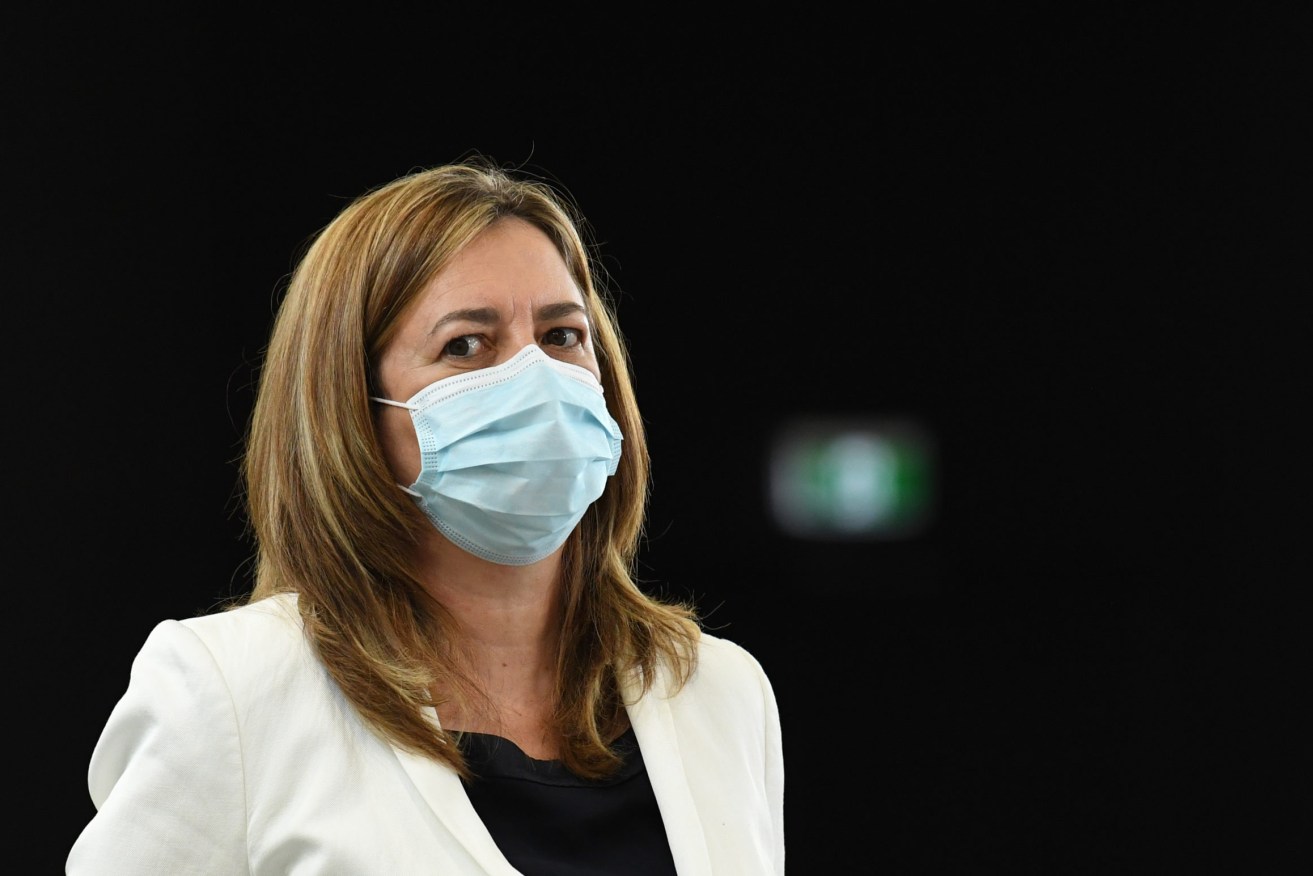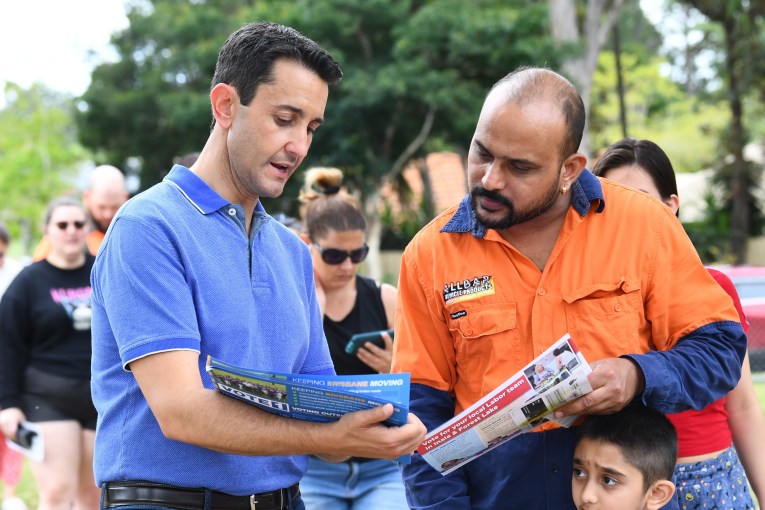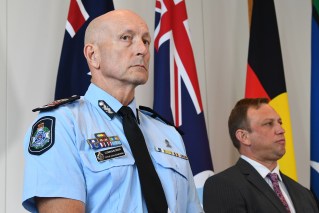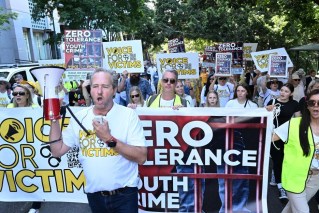Premier ‘open and accountable’ but won’t tolerate leaks on pursuit of integrity chief
Premier Annastacia Palaszczuk has warned of potentially “serious criminal consequences” for those who try to blow the whistle on her bid to have the integrity commissioner investigated.

Queensland Premier Annastacia Palaszczuk is seen during a press conference at Coomera State Special School on the Gold Coast. (AAP Image/Darren England)
Annastacia Palaszczuk referred Integrity Commissioner Nikola Stepanov to a parliamentary committee over old bullying and misconduct claims last year.
Her referral came two weeks after Dr Stepanov formally complained that a laptop had been taken from her office by senior public servants and wiped without permission.
The Economics and Governance Committee has been silent on the matter, but the opposition Liberal National Party wants an explanation, with Stepanov herself also having no objections.
But Ms Palaszczuk is warning that anyone who leaks any committee material about her referral could be in breach of the Public Interest Disclosure Act.
“Breaches of those confidentiality protections constitute offences, which attract serious criminal consequences under the Act,” the premier told parliament on Tuesday.
Committee deputy chair and LNP MP Ray Stevens moved a motion on Monday to release information regarding the Stepanov referral, but the outcome is unclear.
Palaszczuk appointed former Queensland University of Technology vice-chancellor Peter Coaldrake on Friday to review overall government integrity, but he won’t hear individual complaints.
In response, Stepanov and other former senior bureaucrats have called for a Commission of Inquiry to be set up to investigate all integrity complaints by independent statutory bodies, watchdogs and individuals.
“Noting that the fear of legal action and other repercussions are commonly held concerns of whistleblowers, in my view only a full Commission of Inquiry would be able to afford potential witnesses the necessary legal protections required to overcome these concerns,” Stepanov said in a statement on Monday.
Former state archivist Mike Summerell, who has also complained of interference in his record-keeping role, said individual complaints must be heard.
He said it was particularly frustrating as one of his main problems was the poor treatment of public service whistleblowers.
“I would compare the (government’s) response as to having someone punch you in the face and then say, ‘I am not sorry that I punched in the face … but I am sorry you didn’t enjoy the experience. Please let me know if you would like me to punch you in the face again’,” Mr Summerell wrote on LinkedIn on Monday.
However, the premier said protections already exist for whistleblowers in Queensland and the Coaldrake review will be sufficient.
Attorney-General Shannon Fentiman said complaints should be referred to the Crime and Corruption Commission.
“The CCC is Queensland’s standing commission of inquiry,” she said.
“It has all of the powers of a royal commission.
“Legal protections for whistleblowers exist under the Public Disclosure Act, introduced by a Labor government.”
However, LNP integrity spokeswoman Fiona Simpson said it was clear whistleblowers wanted a proper Commission of Inquiry.
“There is no excuse left for the attorney-general and her premier,” Ms Simpson said in a statement.
“Perhaps the attorney-general and her premier should start paying attention and start listening.”
Palaszczuk said the Public Service Commission won’t be involved in picking staff for Professor Coaldrake’s probe.
“I absolutely believe that Peter Coaldrake should be able to do this review completely independently. To that effect, no public servants will be seconded to that review,” she said.
She told Parliament the review would include six areas: the culture of the Public Service, ensuring ethical decision-making and impartial advice; the nature of interactions between integrity bodies, the Public Service and the executive; legislation underpinning the existing ethics and integrity framework; the adequacy of systems; ethics training; and the timeliness of processes to resolve ethical and integrity complaints.
There are also two other probes, and three separate reviews, currently underway involving integrity in the government, the public service and the state’s four integrity watchdogs.












